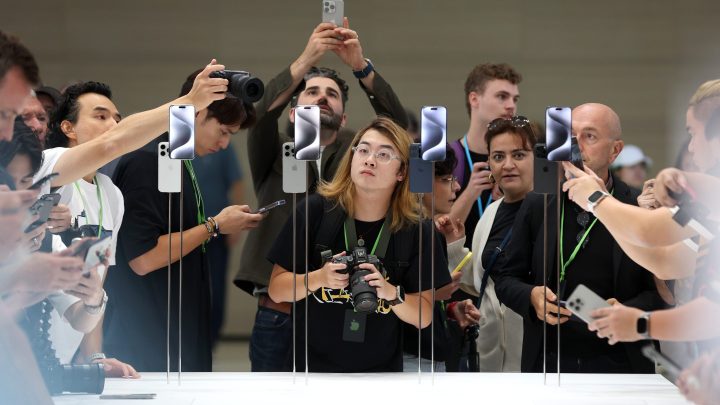
Apple’s new iPhone 15 is just one example of how EU regulation is changing tech
Apple’s new iPhone 15 is just one example of how EU regulation is changing tech

Apple unveiled some new products on Tuesday, including its latest iPhone 15. It’s a pretty subtle update of the company’s flagship device, bringing a better camera and satellite service. But perhaps the biggest change is a standard USB-C charging port instead of the proprietary Lightning connector that has appeared on iPhones since 2012.
It comes ahead of a European Union law that requires mobile devices to be equipped with a common charging system by the end of 2024. It’s also the latest example of how EU regulation is shaping the tech world.
On issues from data privacy to content moderation, as Europe goes, so goes the tech industry, according to Anupam Chander, a law professor at Georgetown.
“The EU is basically the big dog of regulation,” he said.
Big Tech may be a big punching bag in American politics, but actual legislation has deadlocked domestically. That’s not so much the case in Europe, in part because the companies are mostly American, said Chander.
“You can reach political agreement more readily when you’re regulating companies that aren’t your constituents,” he said.
The granddaddy of EU tech law has been the General Data Protection Regulation. There’s also the Digital Services Act, which aims to counter false and harmful information online, and the Digital Markets Act to chip away at anti-competitive behaviors. Lawmakers are now finalizing legislation to take on artificial intelligence.
And EU policies can push global change, noted Iverna McGowan, director of the Center for Democracy and Technologies Europe Office.
“From just a practical sense, it often doesn’t make sense just to change business processes or the way they operate for one region,” she said.
But as pressure from Europe ramps up, it’s starting to threaten core business models the tech industry relies on, like targeted advertising or the walled gardens of app stores, said Eric Seufert, a tech analyst at Mobile Dev Memo.
“Now, I think companies are more reluctant to roll these changes out globally because the interpretation for some of these regulations has gotten so strict,” he said.
We’re increasingly seeing the internet break down along geographic borders, Seufert added. Take Meta’s so-called “Twitter-killer” app Threads — which still hasn’t launched in the EU.
There’s a lot happening in the world. Through it all, Marketplace is here for you.
You rely on Marketplace to break down the world’s events and tell you how it affects you in a fact-based, approachable way. We rely on your financial support to keep making that possible.
Your donation today powers the independent journalism that you rely on. For just $5/month, you can help sustain Marketplace so we can keep reporting on the things that matter to you.











